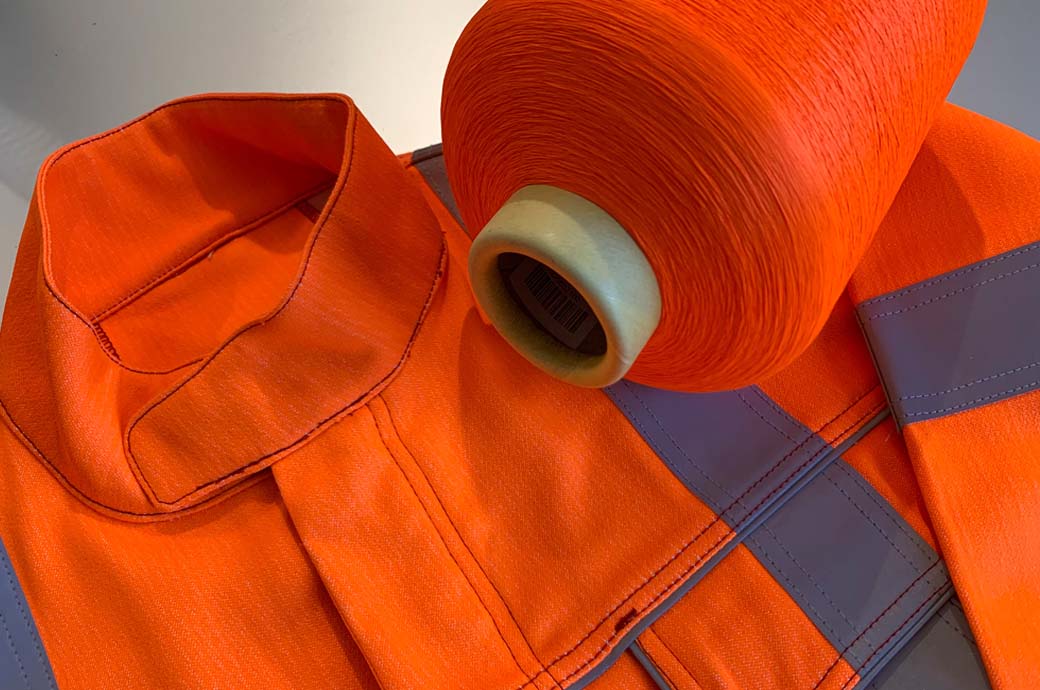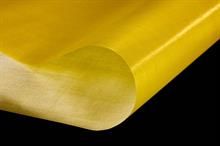
Numerous developments of innovative projects have been carried out in the last couple of years and range through various fields, with important partnerships with other players in the sector.
The development of state-of-the-art modacrylic yarns - PROTEX F and SI - is in an advanced stage, being carried out in collaboration with Filidea’s major customers. The entry of these yarns onto the market, foreseen for the year 2025, will represent a step towards the conformity of this type of product with the most advanced standards required for certifications in the coming years.
Filidea collaborates with Kaneka Corporation, Japan, the manufacturer of the Protex flame retardant modacrylic range from Waxman Fibres LTD, in developing an innovative recycling process that uses textile waste (end-of-life garments) as raw material for chemical recycling. The chemical recycle process, which is an innovative technology programme, reduced the end-of-life garments back into base gases, which are then used to produce acrylonitrile and subsequently used for the reproduction of modacrylic Protex fibres. The process is adaptable to various fibre blends, eliminating the need for a pre-cleaning treatment, and, with a conversion efficiency of 99 per cent, represents a significant example of circularity and reduction of environmental impact from production.
Speaking of the most advanced practices in circular economy, Filidea shares with the Marchi & Fildi Group a high-level expertise in the mechanical recycling of fibres. Because of this specialised skill, the Group was involved in the pilot phase of the Glacier Project, an initiative conceived and promoted by Lenzing, a leading company in the development of innovative fibres.
This international collaboration originates from the desire to preserve glaciers from melting by using geotextiles made of cellulosic fibres - which do not release microplastics - and continues, after the usage period, with a supply chain of excellence that breathes new life into these massive coverings. The know-how related to the mechanical recycling within the Group, which includes Filidea and Marchi & Fildi, allows the unravelling and re-composition of fibres into new yarn, which is then used for creating new fabric, available to brands and designers for the production of new clothing items.
The path taken by Filidea Technical Yarns for the application of technologies and specialist mechanical recycling competences of fibres in the field of technical yarns has experienced a fundamental acceleration with the projects carried out at, MagnoLab, the network for textile innovation which develops new, concrete solutions characterised by sustainability. Located in a single facility, MagnoLab is a collection of pilot plants from companies covering the entire textile supply chain, and it now numbers among its partners various companies at different steps of this supply chain: Achille Pinto, DBT Fibre, DeMartini, Di.Vé, Filidea, Maglificio Maggia, Marchi & Fildi, Pattern, Pinter Group, Tintoria Finissaggio 2000.
Filidea is continuing its investment in the optimisation of its production processes, with particular reference made to the dyeing shop, which represents one of the Group’s points of excellence, and it is also available for processing under contract.
In addition to conformity with European standards pertaining to use of, purification and emission of water based on the recent LCA (Life Cycle Assessment) study, the plant has registered savings of 48 per cent of water necessary, 57 per cent of energy and 48 per cent of steam emission, for a consolidated saving of 37 per cent of the resources forecast for the entire process.
Fibre2Fashion News Desk (RR)

